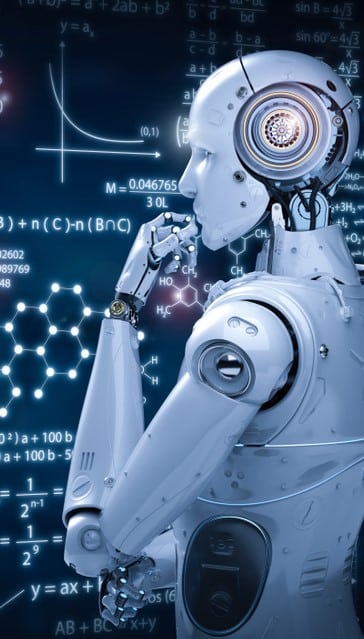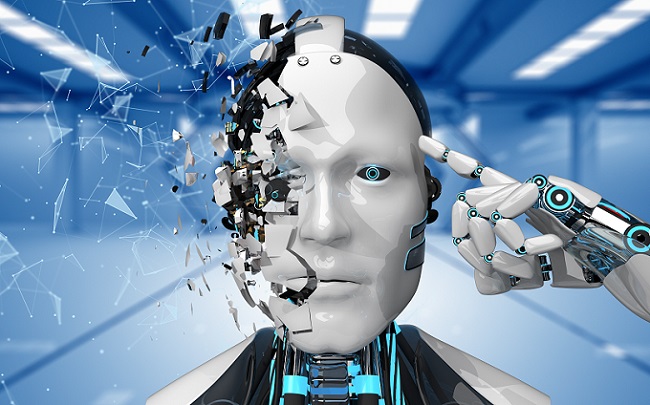
Introduction to Artificial Intelligence and Machine Learning

Artificial Intelligence (AI) and Machine Learning (ML) are two terms that are often used interchangeably, but there is a vital difference between these two cutting-edge fields. Artificial Intelligence is a broader concept that refers to machines carrying out tasks that typically require human intelligence, for example, understanding natural human language and recognizing objects. On the other hand, Machine Learning is a subset of Artificial Intelligence that focuses on instructing machines the ability to learn from data and improve their performance over time.
Artificial Intelligence and Machine Learning are already having a significant impact on our lives, and it’s just going to get bigger. Here are just a few everyday examples of how these technologies are being used today:
- Autonomous vehicles: AI is playing a pivotal role in developing self-driving cars, with ML being used to teach cars how to navigate complex environments and make split-second decisions.
- Fraud detection: AI is being utilized by financial institutions to detect fraudulent activity, such as unusual patterns of behavior that may indicate credit card fraud.
- Personal assistants: Virtual assistants like Siri and Alexa are powered by AI and are getting better and better at comprehending and responding to our natural language queries.
- Face recognition: AI is being utilized by law enforcement agencies, security firms, government agencies, etc., to scan the faces of large crowds and identify individuals.
As these technologies continue to develop, AI and ML will bring about even more transformative changes in the years to come. If you’d like to strengthen your knowledge base in these cutting-edge technologies, consider any first-class Artificial Intelligence course that focuses on AI skills, along with Machine Learning algorithms.
A Career in Artificial Intelligence and Machine Learning
A career in Artificial Intelligence and Machine Learning is one of the most in-demand and rewarding paths you can take today. With impressive salaries and strong job growth projections, there’s never been a better time to enter this fascinating and rapidly-growing field.
But what does a career in AI and ML really entail? Here, we’ll explore the different types of jobs available in these fields and what you can do to start preparing for a career in AI and Machine Learning. Practice Artificial Intelligence Projects to gain a solid understanding of the technology.
Types of Jobs in Artificial Intelligence and Machine Learning
In the field of AI and ML, numerous job opportunities are available to aspirants. Here are some of the most popular job roles:
- AI Engineer: They are responsible for developing, programming, and training complex AI models with the assistance of Machine Learning algorithms and Deep Learning Neural Networks. Check out the ai as a service course for free.
- Machine Learning Engineer: They are responsible for developing and deploying Machine Learning models, involving everything from selecting the correct algorithm to designing the infrastructure that will support the model.
- Data Scientist: They are responsible for collecting, cleaning, and analyzing data. They use this data to build predictive models that can be used for making data-driven decisions.
- Research Scientist: They are responsible for devising new ways to apply Machine Learning to solve real-world problems. The responsibilities can involve anything from developing new algorithms to working on applications of Machine Learning like Natural Language Processing or Computer Vision.
Future Scope of Artificial Intelligence
Artificial Intelligence is one of the significant technological breakthroughs of our era. The future scope of AI is limitless; it has the potential to revolutionize every industry and make our world a better place.
In the future, AI will continue to evolve and become more sophisticated, and it will become even better at understanding and responding to the complexities of the world around us. With the help of AI, we will be able to tackle some of the world’s most pressing problems, such as climate change, food and water shortages, and disease.
AI and Machine Learning are at the forefront of the most in-demand skills in today’s job market. According to an article by Forbes, AI jobs or Machine Learning skills are predicted to grow by 71% in the next five years.
As these technologies continue to develop, AI and ML will bring about even more transformative changes in the years to come – add here -for example, artificial intelligence is changing healthcare industry entirely.
Starting a Career in Artificial Intelligence and Machine Learning
If you’re excited about pursuing a career in Artificial Intelligence and Machine Learning, there are a few essential things you can carry out to start preparing:
1. Learn the Basics of Programming.
Programming is the process of creating step-by-step instructions for a computer to follow. It is a must-have skill for anyone working with AI or ML, as it is used to create the algorithms that power these technologies, train Machine Learning models, and deploy AI and ML solutions. In other words, without programming, there would be no AI or ML.
If you’re not already familiar with programming, you’ll need to learn the basics before you can start working with Machine Learning algorithms. An excellent way to start is by taking an online course or tutorial on popular languages like Python.
Stella Cooper, CEO of PaydayLoansUK, shares their experience in learning programming languages during their AI and ML career path:
I have been working as an ML and AI professional for years, but when I started, the most significant prerequisite I followed was full-fledged proficiency in programming skills. As an ML and AI aspirant, I needed to learn C++, Java, Python, and R programming language. As C++ aids engineers in boosting the speed of the coding process, Python helped me better understand and create complex algorithms. So, I started working on various projects that gave me significant hands-on experience in the field and helped me to highlight my resume. I have also collaborated with others, and it helped me upskill myself to fulfill the industry requirements.
Steven McConnell, the Director at Exceptional Resume Writers, also shares the significance of programming skills:
Learning Programming languages like Python, R, Java, or C++ is necessary to jumpstart your career in AI. Aside from taking a Computer Science or Information Technology course in college, it would help if you keep yourself abreast with these programming languages. Thus, it may be good to take internships or online training to gain practical experience with these. As the famous saying goes, nothing teaches better than experience, so be on the lookout for opportunities to learn and put your programming skills into practice.
2. Gain a comprehensive understanding of Mathematics and Statistics.
Mathematics is the study of numbers, formulae, shapes, spaces, and quantity. So, if we want to understand how the world works and build machines that can simulate or even surpass human intelligence, excellent working knowledge of Mathematics is absolutely essential.
Statistics, on the other hand, is all about making sense of data. In the age of Big Data and Data Science, Machine Learning algorithms are only as good as the data they are trained on. Good statistical analysis can help us make sense of huge data sets, identify patterns, and build better Machine Learning models.
Madilyn Hill, CEO of Truepersonfinder, shares their experience in learning Mathematics during their AI and ML career path:
I started my career in Artificial Intelligence and Machine Learning by kickstarting preparing myself. Various prerequisites are there to work in these fields, and that’s why I learned mathematical skills and probability. It helped me start my career as probability assisted me in determining a wide array of outcomes in AI, with a profound understanding of the subject being fundamental to building AI models. The next step of my career was to start working on these skills, which I fell behind. However, the best thing that I did was buy books on statistics and probability and revise my coding skills.
Max Shak, CFO of Abtron.com, also shares the significance of Mathematics and Statistics:
Skills in Statistics – To understand and analyze complex algorithms, AI aspirants need a deep understanding of statistics and probabilities. In order to understand the insights gained from data, one needs to be well versed in the methods used to find patterns in large amounts of information.
Probability and Mathematical Skills – In order to create artificial intelligence, you will need to be well-versed in both probability and mathematics. Probability is used in AI to determine a variety of outcomes; the creation of AI models is dependent on a deeper comprehension of the subject.
3. Get familiar with Machine Learning Algorithms.
To start working with Machine Learning, you’ll need to understand the different types of algorithms and how they work. These ML algorithms can learn from data and enhance the performance of Artificial Intelligence and Machine Learning systems. ML algorithms can automatically identify patterns in data, which can assist in making predictions or recommendations. You can learn more about this online by taking a Machine Learning course, which will familiarize you with Machine Learning Algorithms.
4. Get familiar with AI Concepts like Deep Learning, Natural Language Processing, and Computer Vision.
Natural Language Processing (NLP) and Computer Vision (CV) are two of the most critical pillars of Artificial Intelligence. Here’s why:
NLP is responsible for giving computers the ability to understand human language. NLP is a crucial capability for any AI system that needs to interact with humans, whether it is a virtual assistant like Siri or Alexa or a chatbot used for customer service.
CV, on the other hand, enables computers to “see” and interpret the world around them. CV is essential for tasks like autonomous driving, object recognition, and image search.
Both NLP and CV are complex problems to solve, and there has been significant progress in both fields in recent years. This progress is primarily due to the adoption of Deep Learning, a powerful AI technique that is well-suited to these problems by learning complex patterns in data.
Deep Learning has allowed NLP and CV systems to achieve human-level performance on many tasks, and there is reason to believe that these systems will only get better in the future. As they continue to improve, NLP and CV will become increasingly crucial for AI and Machine Learning.
Pro Tip: These subjects are among the few essential skills required for a career in Artificial Intelligence and Machine Learning. To get more familiar with these skills, you can explore the free courses in Deep Learning, Natural Language Processing, and Computer Vision from Great Learning Academy.
5. Gain experience working with data.
Why is working with data so crucial for AI and ML? Well, it all comes down to something called “training data.” This is a dataset that is used to train a Machine Learning model. It typically contains a large number of examples (items) that are labeled with the correct answers. The model can then learn from this data and generalize it to new data, which is what allows it to make predictions or decisions.
Think of it this way: if you were trying to teach a child how to read, you would start by giving them a bunch of books to read. As they read more and more, they would notice patterns and be able to read new words. The same is true for Machine Learning models; the more data they have to work with, the better they can learn and generalize.
Data Scientists are generally responsible for working with data, and they typically work with large data sets to identify patterns and insights.
Data scientists are critical in developing algorithms that enable data to be collected and cleaned for analysis. They’re also in charge of establishing a healthy data process and ensuring that predictive models have access to the most up-to-date data.
Pro Tip: To gain experience, you can volunteer to work with data for a local organization or take on a data-focused project as part of your studies. Furthermore, you can take up any top-class Data Science course to hone your skills in working with data.
6. Stay up to date with the latest advancements.
Artificial Intelligence and Machine Learning are constantly evolving, so it’s essential to stay up to date with the latest advancements. It can be done by reading relevant blog posts and articles, attending conferences, and taking courses on new developments in the field.
Steven McConnell, the Director at Exceptional Resume Writers, agrees with us and states:
Artificial intelligence is not just one of the most in-demand skills of the decade; it is also ever-evolving, so anyone wishing to build a career in any of its broad fields must stay updated with the newest developments in the industry. Online courses and certifications can help you to this end.
7. Get a Degree or Certification in a related field.
With the rapid development of AI and ML, the demand for professionals with these skill sets is skyrocketing. Nearly every industry is seeking ways to harness AI and ML to improve their business operations, and they need skilled workers to make it happen.
A degree or certification in AI and ML can give you the skills you need to develop and deploy solutions that can help businesses automate tasks, make better decisions, and improve their bottom line. With the proper training, you can become an invaluable asset to any company looking to stay ahead of the competition.
If you want to pursue a career in AI and ML, I suggest you have a degree or certification in this field. Many universities and online platforms are now offering different courses for Artificial Intelligence and Machine Learning. This is because most top-level AI professions, such as research scientists, AI engineers, and big data engineers, will require a master’s degree. Most AI jobs will demand candidates to have solid programming knowledge and skills in MATLAB, C/C++, and Python. You cannot learn these skills on your own or from watching videos online. That is why you must pursue a degree or a certification to get started and become a pro in this field.
In my opinion, artificial intelligence (AI) and machine learning (ML) are becoming increasingly important in helping organizations make smarter and faster decisions and products. A Master’s degree in Artificial Intelligence and Machine Learning can assist you in transitioning to an interesting machine learning or artificial intelligence job, which is a rapidly rising and in-demand field in today’s market. A master’s degree in artificial intelligence is also a good investment for seasoned tech workers who want to advance their artificial intelligence careers by taking on leadership or executive roles in their firm or sector.
If you want to start a career in artificial intelligence and machine learning, you are going to need a degree that is relevant to the subject (in most cases). A master’s degree or a PG diploma in computer science is usually the best course of action, and it is what will give you all of the necessary basic skills and knowledge to proceed. If you’re studying independently in order to get started within the world of AI, then I recommend picking up subjects not only computer science but of specific programming and algorithm skills, as well as perhaps business or culture, as these also play a role in AI!
Case Study
Richard Billingsley, an experienced AI professional who is currently working at a financial prediction service company called MyShare.com, has shared his views on the Artificial Intelligence career path:
In the past 10 years, it has become much easier to start a career in Artificial Intelligence and Machine Learning.
To get started and find out if you are interested in the subject, there are Kaggle contests and online courses that teach you how to implement other people’s machine learning ideas and use the main frameworks like TensorFlow and Torch. This is a good way to familiarize yourself with the main ideas, and if you like the technical work of system implementation, then it is a good way to go.
The next level up is to actually study a course somewhere. Lots of universities are now offering really good courses in artificial intelligence and natural language processing. By studying at university, you don’t just learn how to implement and fine-tune a model, but you also learn how and why it works. This puts you one step ahead towards developing your own learning systems and really understanding what’s going on.
If you really like the research aspects, you can even go on to do a Ph.D. and publish papers at the cutting edge of AI development. That’s what I wanted to do when I studied for a Ph.D. in Artificial Intelligence. After graduating, I started working at a health insurance claim fraud detection company. Following this, I worked at a couple of universities doing post-doc research into social robotics and natural language processing which was amazing fun. We developed robots that served drinks and carried your bags for the winning team at Robocup.
Now, I work at a financial prediction service company called MyShare.com. We use many aspects of AI, from natural language processing reading the news, to financial models that make share price predictions over the short, medium, and long term. I find it satisfying to see my studies used in a way that is productive, innovative, and helpful to other people.
The nice thing about Artificial Intelligence is that almost anyone can do it. All you need is a gaming computer with an NVIDIA graphics card, CUDA, some python libraries like Torch and Numpy, and some data, and you can train up your own model. Making a website is easy with PythonAnywhere or any of the good hosting companies, and there you can have your own Artificial Intelligence site up and running. Whether it’s detecting cancer from MRI, translating languages, designing new fashion, or social chatbots, it’s new and fun and invigorating. But don’t go forecasting the stock markets because we are already doing that!
Summing up
Artificial Intelligence and Machine Learning are two of the hottest topics in tech right now. There are ample opportunities for those with the right skill set. Many tech companies, including Google, Facebook, and Microsoft, are actively hiring AI and ML experts.
The job market is only going to become more competitive in the years to come, so now is the time to start investing in your education and skill set if you’re interested in a career in Artificial Intelligence and Machine Learning.











